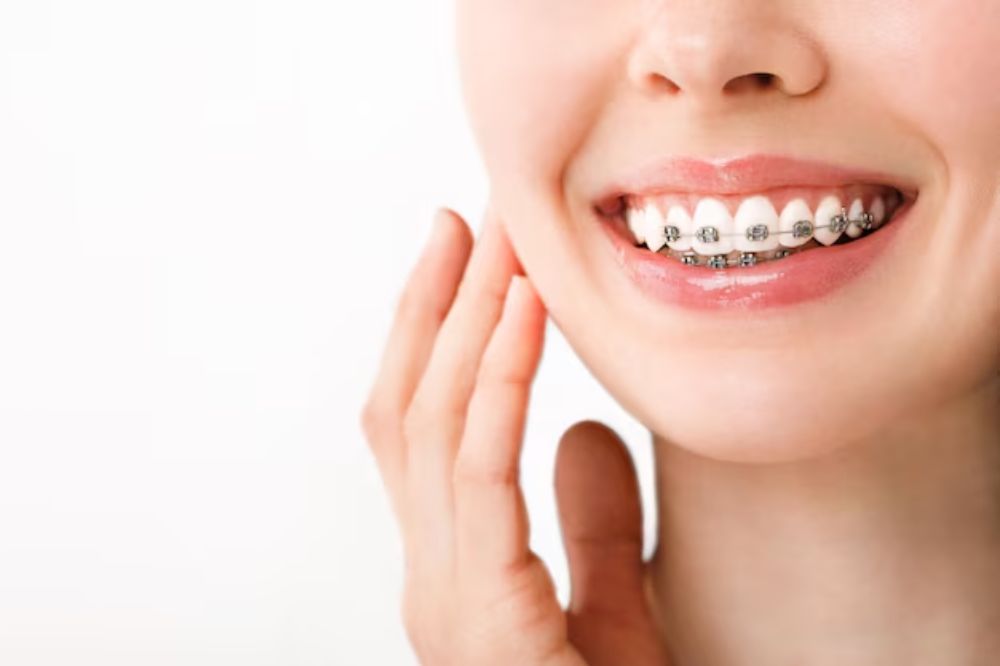Do you worry about cavities while in braces or other treatments? Well, Orthodontic treatment in Prince Albert can improve your smile, but your teeth will need extra care during the treatment to stay healthy. Plaque and food particles easily become trapped around brackets and wires and would increase the chance of decay if good oral hygiene is not practiced.
Why Is Oral Care Important During Orthodontic Treatment?
Having braces and aligners makes brushing and flossing more challenging, which can raise your chance of developing cavities. Even with regular visits to the dentist, your daily routine is key. So be sure to understand how to prevent cavities while in orthodontic treatment for long term oral health.
What Are the Four Important Steps to Effective Orthodontic Care?
1. Brush Your Teeth Properly and Often
- Use a soft toothbrush or an electric one.
- Brush after every meal if possible.
- Angle the toothbrush at 45° to brush around the braces and wires.
2. Flossing with Orthodontic Appliances
Flossing can be challenging with braces, but it is equally important.
- Use a floss threader or orthodontic flosser to floss between the teeth.
- You can consider a water flosser to help remove plaque.
- Make daily flossing part of your routine to remove food and prevent cavities.
3. Rinse and Protect
- It’s really important to rinse with a fluoride mouth rinse that strengthens your enamel.
- Avoid sugary, sticky foods that will stick to the brackets.
- Chewing sugar-free gum should help with saliva flow, which decreases acid.
4. Schedule Routine Visits to the Dentist
- Next, you will want to set up regular visits to your local dentist for checkups and cleanings. A dentist can keep track of your teeth and identify problems long before they need to be treated.
- A dental hygienist will clean your teeth and remove plaque that is not possible to remove by brushing or flossing alone.
What Are the Foods to Prevent Cavities
During orthodontic treatment care, some foods will help maintain the health of your teeth:
- Crunchy fruit and vegetables: Apples and carrots act as natural cleaners for your teeth. Their texture scrubs away food particles.
- Milk and dairy: Milk, cheese, and yogurt all help promote stronger tooth enamel and protect your teeth from decay.
- Sugar-free snacks: Sugar-free gum or nuts are more protective and reduce the decay risk from sugary snacks.
- Water: Drinking plain water is equal to rinsing away food debris. It will also help maintain cleanliness in your mouth throughout the day.
Braces Vs. Clear Aligners: Which Is Easier to Keep Clean?
When it comes to cavity prevention, each orthodontic appliance has its needs for caring for it.
- Braces: Plaque accumulation will likely be higher with braces because the brackets and wires trap food. Flossing is more difficult. Daily cleaning usually takes 10-15 minutes.
- Clear Aligners: If you clean your trays, there is a lower risk for plaque accumulation with clear aligners. Flossing is less complicated with removable trays, as you will not have to work around brackets and wires. Daily cleaning should take 5-10 minutes.
What Are the Common Mistakes That Increase Cavity Risk?
- Skipping flossing or brushing once a day.
- Eating sticky candies or hard snacks.
- Not paying attention to early signs of tooth decay or gum problems.
- Skipping follow-up appointments during orthodontic treatment in Prince Albert.
Schedule Your Orthodontic Care Checkup Now!
Keep your teeth and oral health during ortho therapy by brushing, flossing and coming to appointments. We believe in engaging the patient with personalized care and then cleaning. Come and visit us at Prairie Pines Dental Centre in Prince Albert, we will give you the direction and guidance you need to keep your mouth cavity free.
FAQ
Can I use regular toothpaste with braces?
Yes, fluoride toothpaste is recommended for all orthodontic patients, as fluoride strengthens enamel and prevents cavities.
How often should I floss with braces?
Flossing with orthodontic appliances should be done at least one time a day ideally before bed, to remove food and plaque.
Are mouthwashes effective at preventing cavities with braces?
Fluoride mouthwash is extremely effective because it can reach places that brushing may miss and adds layer of protection for enamel.
Can orthodontic treatment cause white spots on teeth?
Yes, these are the early signs of demineralization of the enamel or enamel erosion due to plaque build-up. If you brush, floss and use fluoride, they can be prevented.
Do I need to be professionally cleaned while in orthodontic treatment?
Yes! A dentist near you can remove plaque build-up that is hard to remove, as well as provide other preventive services that include monitoring your oral health and preventing cavities.
